World
UN forces in Mali speed up withdrawal as security deteriorates
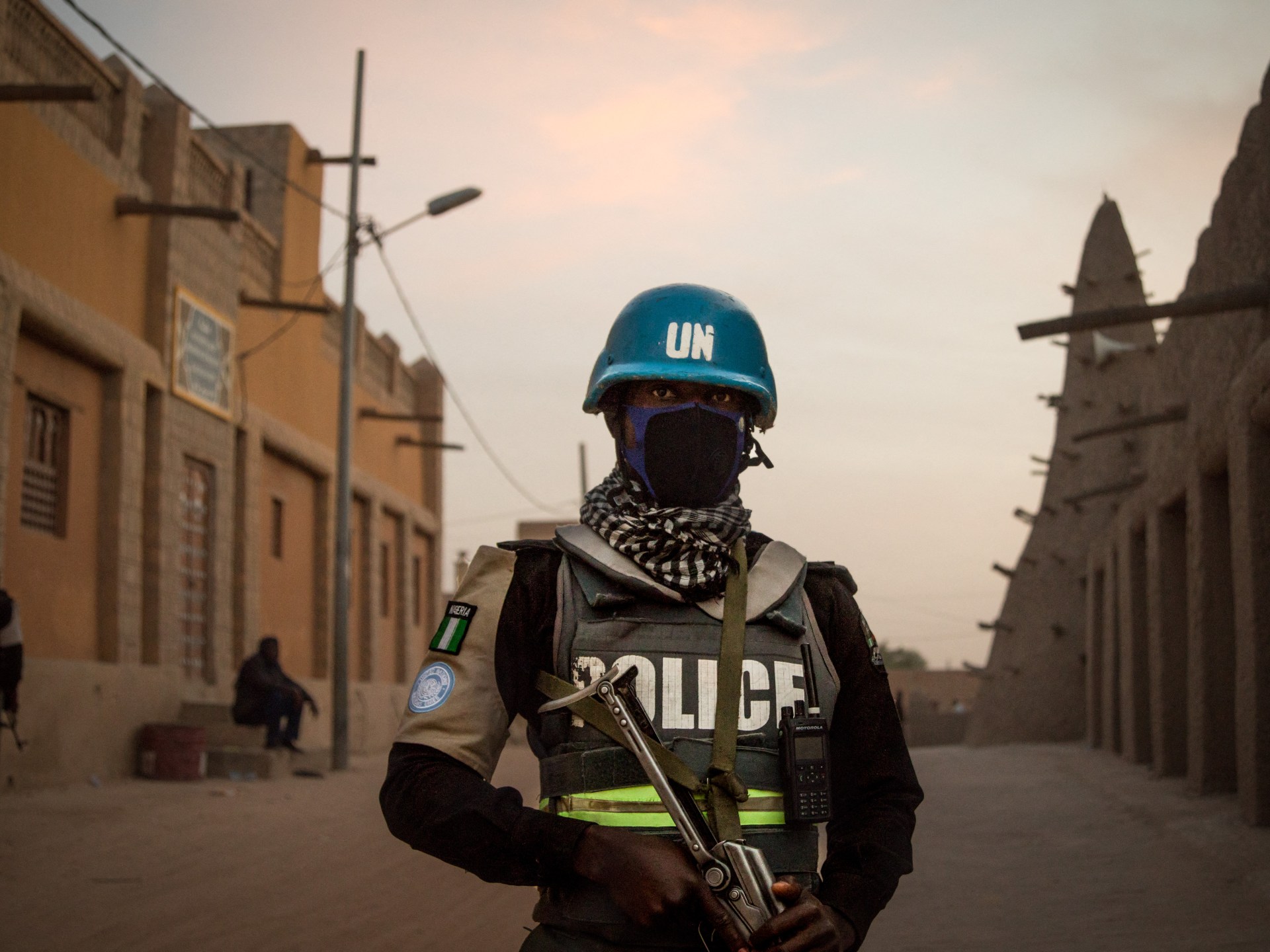
UN’s impending pullout has exacerbated tensions between Mali’s military government and the rebel Coordination of Azawad Movements.
The United Nations’ peacekeeping mission in Mali has sped up its withdrawal from the city of Ber in the north after a surge in fighting.
The UN mission, known as MINUSMA, said in a statement on Sunday that “deteriorating security” had made its departure urgent.
“MINUSMA has brought forward its withdrawal from Ber due to the degradation of security in the area and the high risks that brings for our Blue Helmets,” the force said on X, formerly known as Twitter.
“It urges all concerned parties to refrain from any actions that could further complicate the operation.”
A senior local security official said the UN mission left “without incident”.
In recent days, the Tuareg-led northern rebel alliance, called the Coordination of Azawad Movements (CMA), accused Malian forces and Russian Wagner Group troops of violating a ceasefire by attacking its forces near Ber.
Mali’s army has not addressed the CMA’s accusations, but said six of its soldiers stationed in the town were killed by “armed terrorist groups”.
Fighting continued on Sunday between the rebels and Mali’s troops, according to CMA spokesperson Mohamed Elmaouloud Ramadane.
Unexpected departure
The uptick in violence has raised concerns over the revival of a separatist uprising in a country mired in unrest since 2012.
CMA seeks independence from the Malian state and controls most areas of the north.
The departure of MINUSMA, therefore, came as an unexpected demand by Mali back in June, as the force had been there for the last decade. Their presence helped thwart a Tuareg-led rebel separatist uprising through the signing of the 2015 Algiers Accord.
MINUSMA had about 11,600 troops and 1,500 police officers in the country.
In 2012, armed groups hijacked the Tuareg’s uprising, their insurgency eventually spreading to neighbouring Burkina Faso and Niger, killing thousands and evolving into one of the world’s worst humanitarian crises.
The country’s instability as a result helped Mali’s military government seize power in coups in 2020 and 2021. The military rulers are also accused of “grave human rights abuses”, according to the UN.

World
Incoming Trump admin, Congress showdown looms with South Africa over support for Russia, US foes
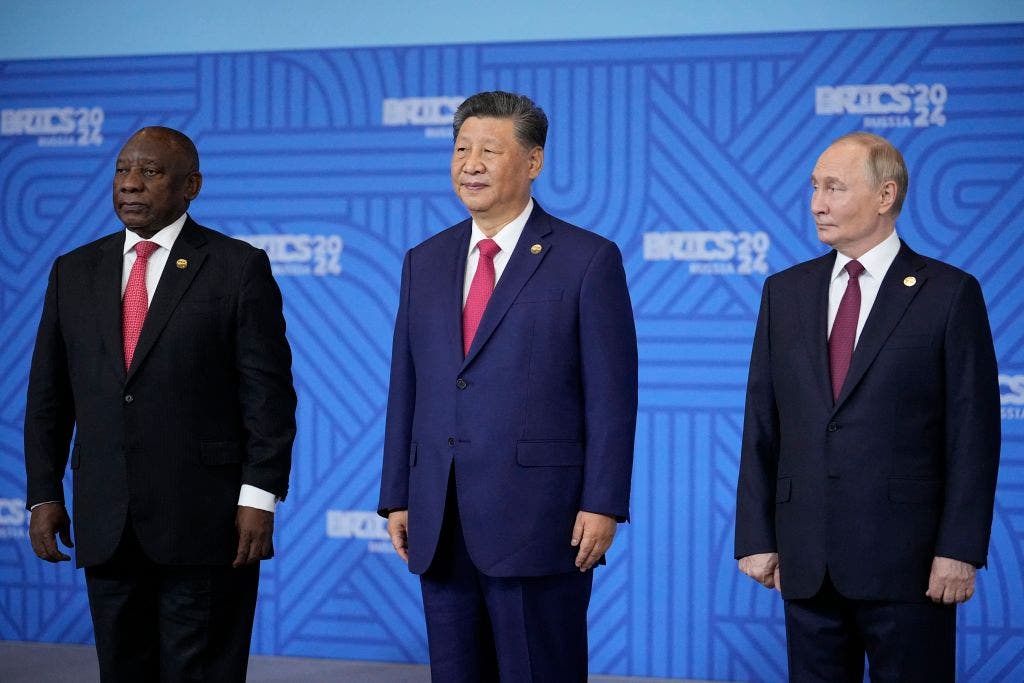
JOHANNESBURG – Key Republicans are already pressing the incoming Trump administration to kick South Africa out of lucrative trade arrangements, should the South African government not change its position on Russia, China, Iran and Israel.
Most at risk is South Africa’s duty-free exports to the U.S. of items such as cars and citrus fruit under AGOA – the African Growth and Opportunity Act, and with it the potential loss of tens of thousands of African jobs. South Africa is likely to be under intense scrutiny from the incoming administration.
A publication from the Center for African Studies at Howard University, in 2023, warned that a country wanting AGOA’s preferential trade agreements “cannot act in a manner that undermines U.S. national security or foreign policy interests”.
South Africa joins Russia’s military aircraft and naval vessels on exercises, allowing Pretoria’s naval bases to be used by the Kremlin and Russia’s sanctioned warships. Senior South African military officials have received training in Moscow. At the U.N., South Africa has refused to condemn Russia’s invasion of Ukraine.
BIDEN TRAVELS TO AFRICA WHERE POLICIES WERE ‘OVER-PROMISED AND UNDER-DELIVERED,’ AMID MASSIVE CHINA EXPANSION
President-elect Trump (Peter Kramer/NBC via Getty Images)
South Africa’s majority ANC party has met with terror group Hamas, and recently one branch of the ANC supported a local Muslim leader who reportedly shouted to a cheering crowd, “I am Hamas, Cape Town is Hamas, Viva Hamas!” The government also issued a statement condemning the killing this year of Hamas leader Ismail Haniyeh. The country’s foreign minister, Ronald Lamola, spoke out against the “assassination” of this designated terrorist leader, saying “such acts of extrajudicial killings violate international law.”
South Africa has accused Israel of genocide at the International Court of Justice.
South Africa’s biggest trading partner is China, with the two countries being founder members of the BRICS trade organization. South Africa has welcomed the inclusion now of Iran in BRICS. There have been accusations of deep links between Tehran and Pretoria.
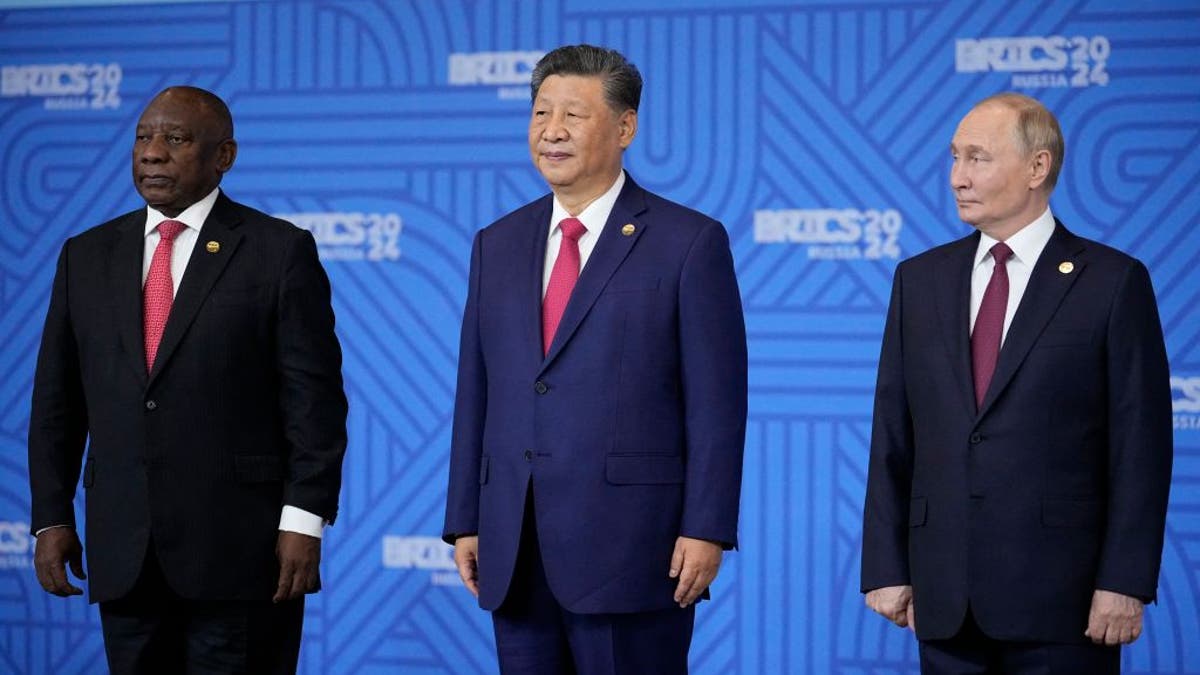
South African President Cyril Ramaphosa, Chinese President Xi Jinping and Russian President Vladimir Putin during the BRICS summit in Kazan on Oct. 23, 2024. (Alexander Zemlianichenko/Pool/AFP via Getty Images)
“Given the South African positions on the Russia-Ukraine and Mideast conflicts, South Africa is leaning away from American positions in a number of ways, most especially in its vigorous pursuit of Israel and its leaders in the international courts,” J. Brooks Spector told Fox News Digital.
Spector, a former U.S. diplomat now based in Johannesburg, and deputy editor of the respected Daily Maverick, added that “continuing action and rhetoric by South Africa in its pursuit of Israel in international court efforts will, however, encourage Republicans in Congress (and probably in the administration as well) to strip South Africa of benefits under the African Growth and Opportunity Act, assuming the act is renewed next year.”
BIDEN-HARRIS ADMIN ACCUSED OF ‘TOO LITTLE, TOO LATE’ TO SAVE THE PEOPLE OF WAR-TORN, FAMINE-STRICKEN SUDAN
“Such pursuits by the South African government may also lead to efforts to cut back on assistance to important efforts such as PEPFAR – the aid program that, together with the Global Fund and local organizations, has been crucial in the country’s successful efforts combatting HIV and AIDS.”
One such leading Republican, Sen. Jim Risch of Idaho, ranking member of the Senate Foreign Relations Committee, told Fox News Digital, “I remain concerned about South Africa’s efforts to cozy up to Russia, China and Iran, including Iran’s terror proxies, and the impact this has on U.S. national security – a vital element in AGOA eligibility. The country’s foreign policy actions will remain a focus of my oversight efforts.”
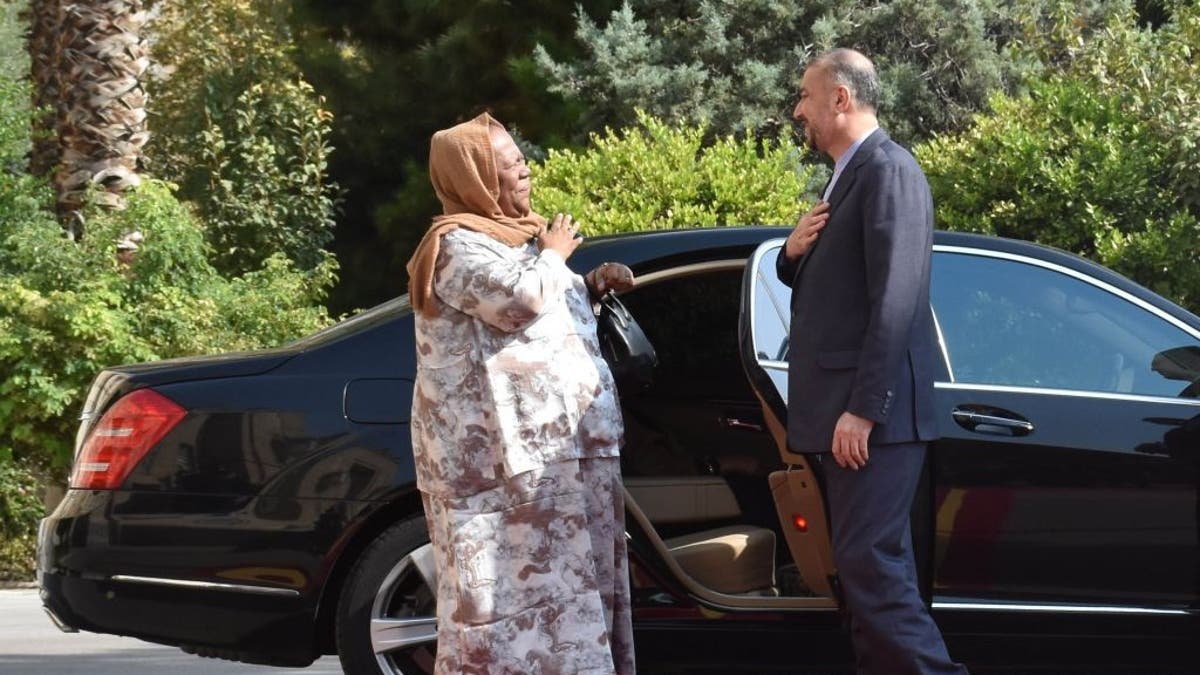
Naledi Pandor, minister of international relations and cooperation of South Africa, and Hossein Amir-Abdollahian, minister of foreign affairs of Iran, meet in Tehran on Oct. 22, 2023. (Haydar Sahin/Anadolu via Getty Images)
Sen. Tim Scott, R-S.C., ranking member of the Senate Foreign Relations Subcommittee on Africa and member of the Senate Finance Committee, slammed South Africa in 2023, “South Africa has harbored sanctioned Russian ships, expanded relations with Iran and issued statements against Israel’s right to defend itself following Hamas’ recent terror attacks”
Both of these influential Republican leaders are expected to become more powerful when President-elect Trump takes office in January, with Scott’s office staff telling Fox News Digital, “Sen. Scott looks forward to working with the Trump administration to ensure that AGOA participants are not undermining our national security interests.”

The now deceased Hamas leader Khaled Meshaal at a rally in his honor on Oct. 21, 2015, in Cape Town. South Africa. (Rodger Bosch/AFP via Getty Images)
South Africa’s moves are very definitely in an extremely bright spotlight in Washington. From inside the beltway, Richard Goldberg told Fox News Digital he’s worried particularly over potential links between South Africa and Iran. Goldberg is a former member of the National Security Council, and a senior adviser at the Foundation for Defense of Democracies. He told Fox, “The first step is to build the case publicly, and give South Africa one last moment of choosing. We should declassify intelligence about South Africa’s deep relationship with Iran, and any other support or partnership with terrorist groups.”
Goldberg continued, “And then we need to use our full diplomatic and economic weight to force Pretoria to choose between the United States and our terrorist adversaries. AGOA should be one of several items on the policy menu.”
South Africa’s Department of International Relations didn’t respond to several requests for comment. But COSATU’s Parliamentary Co-ordinator, Matthew Parks did. COSATU is the Confederation of South African Trade Unions, historically aligned with President Cyril Ramaphosa’s ANC party. Parks is highly respected for his meaningful and dignified pursuance of workers’ rights. His members have much to lose, including potentially their jobs, if South Africa is pushed out of AGOA. But he appeared to be cautiously optimistic when talking to Fox News Digital, “We are confident that our relations with the U.S. will continue to grow, including through AGOA, simply because it is to the benefit of both our peoples.”
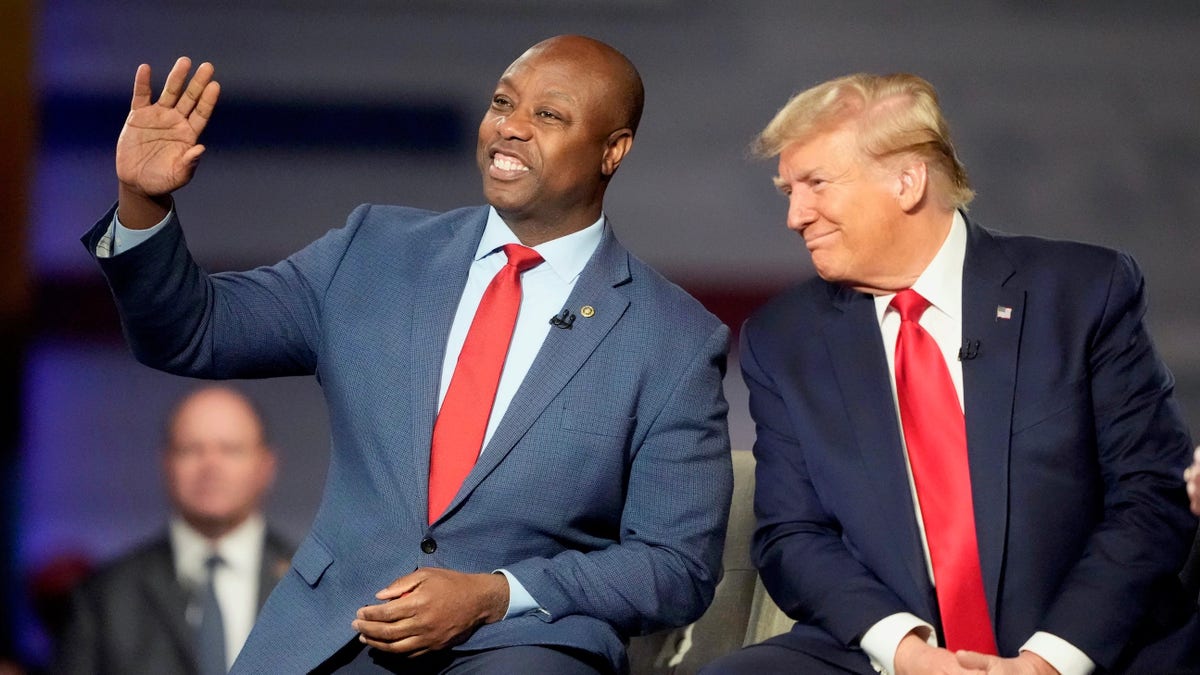
Sen. Tim Scott and former President Trump during a Fox News Channel town hall on Feb. 20, 2024, in Greenville, South Carolina. (AP Photo/Chris Carlson)
“We’ve been extensively involved in engagements between South Africa and the U.S., on how to deepen our relations and toward the renewal of AGOA,” Parks continued. “We’ve engaged extensively with our colleagues in the U.S. labor movement, business community, Congress (both Republicans and Democrats), the State Department, Department of Labor, NSC and the White House.”
As Trump moves into the White House, nearby Ebrahim Rassool will be starting his second term as South African ambassador to the U.S. This month he talked to the Daily Maverick on South Africa’s challenges with the new administration, referring to South Africa’s attack on Israel at the ICJ. “We will stick by the case, but let us now trust our legal team,” he said, “trust the evidence that we have placed in front of the judges of the ICJ, trust the judges of the ICJ to come to a sustainable, just solution – but that we need to put away the megaphone now.”
THOUSANDS OF CHRISTIANS ‘DELIBERATELY TARGETED’ AND KILLED IN NIGERIA, NEW REPORT SAYS
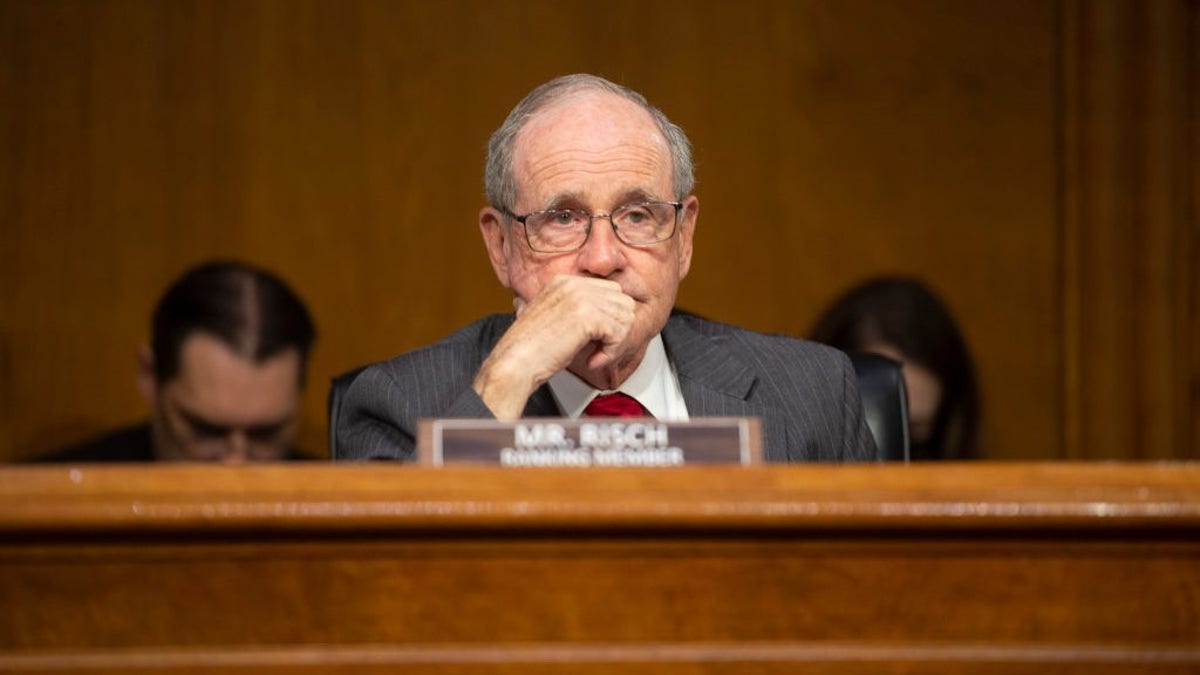
Sen. Jim Risch during a Senate Foreign Relations Committee hearing at the U.S. Capitol on April 26, 2022. (Bonnie Cash-Pool/Getty Images)
Rassool pointed out that the South African oranges exported to the U.S. under AGOA enabled Americans to drink orange juice all year round, when Florida and California oranges were out of season.
And Rassool added, “Why would you want to punish America with expensive cars when the BMWs coming from South Africa are going to be much cheaper than getting them from Germany or manufacturing your own?
“Likewise, to point out that American cancer patients are receiving medical nuclear isotopes that come from South Africa.”
The expulsion of South Africa from AGOA would be “disastrous,” Renai Moothilal wrote in the Business Day newspaper last year. Moothilal is CEO of the National Association of Automotive Component & Allied Manufacturers, and wrote, “It will be no surprise if some component manufacturers close their doors. U.S.-headquartered multinational manufacturers with plants here may exit the South African country if there are volume losses linked to our exclusion from AGOA, or other forms of political pressure are brought to bear.”
Observers note there are loud threats coming from President-elect Trump himself, including a claim that he will slap a 100% import tariff on countries like South Africa if, as members of BRICS, they adopt a new currency to rival the dollar. In the other corner of the ring, South African politicians are taking a more placatory and reserved tone. The Democratic Alliance or DA is South Africa’s main opposition party. But since May, they have also been members of the government of national unity, working in a sometimes noisy coalition with President Ramaphosa’s ANC.

The Russian frigate Admiral Gorshkov docked in the Cape Town harbor, Feb. 14, 2023, en route to naval exercises with the South African and Chinese Navy. (AP Photo/Nardus Engelbrecht)
Emma Powell, the DA’s national spokesperson for foreign affairs, told Fox News Digital that it’s likely the relationship between Pretoria and Washington “will become increasingly transactional, with greater emphasis placed on equitable reciprocity. This would contrast the Biden administration’s approach to beneficiation-based investment and development. There is also likely to be less tolerance for any action on the part of the South African government that may be perceived as undermining the national security interests of the United States.”
Powell added “the Trump administration is also likely to take a more cautious approach on AGOA eligibility.”
J. Brooks Spector told Fox News Digital he could take home one strong positive: “The incoming U.S. president’s often-expressed support for transactional foreign economic policies may possibly be an incentive for Africa’s nations – urged on by South Africa – to come together with initiatives offering trade and market concessions in Africa to America.”
World
2024: Top 10 defining moments in the European Parliament

From crucial votes on nature and migration, to powerful speeches and hard debates: the year saw drama and upheaval in the Eurochamber
2024 was a year of change for the European Parliament, shaken up by the elections in July.
Beyond the vote, which significantly modified its composition and balance of powers, here are some moments to remember from this year.
1. Farmers’ protests reach Parliament
The beginning of 2025 was marked by massive protests of farmers across Europe, from Germany and France to Poland and Spain.
Among their targets were the EU’s commercial deal with Mercosur countries – at that time negotiations were still ongoing – and some European environmental policies affecting the agrifood sector.
On 1 February, a thousand farmers from several countries arrived in Brussels. After a night procession on their tractors, they occupied the square in front of the European Parliament for an entire day, burning hay, spreading manure and damaging the square.
2. ‘Stop being boring to defeat Putin’
One of the most powerful and evocative interventions in the European Parliament was Yulia Navalnaya’s in February. She took the floor in the hemicycle in Strasbourg days after her husband, Alexei Navalny, died under suspicious circumstances while imprisoned in Russia.
Navalnaya paid tribute to the opposition leader’s courage and attacked Russia’s president Vladimir Putin, receiving a general standing ovation from MEPs.
“If you really want to defeat Putin, you have to become an innovator. You have to stop being boring,” Navalnaya told MEPs.
“You cannot defeat him by thinking he is a man of principle who has morals and rules. He is not like that. And Alexei realised that a long time ago. You are not dealing with a politician but with a bloody monster.”
3. The final battle on Nature Restoration Law
The Nature Restoration Law, a proposal to gradually rehabilitate the EU’s land and sea areas degraded by climate change and human activity was one of the most contentious issues in the European Parliament in the final part of the legislature.
European People’s Party (EPP) began a full-throttle campaign to bring down the law, arguing it would imperil food production, increase retail prices and devastate the traditional livelihoods of farmers.
EPP talking points were backed by right-wing forces, but fully contested by progressive MEPs, environmental organisations, legal scholars and even multinationals, who said restoring nature was indispensable to maintain a prosperous economy and sustainable supply chains.
The EPP even pressed on with a controversial social media push, going as far as claiming the legislation would turn the city of Rovaniemi, where Santa Claus lives, into a forest.
In February, the Parliament eventually approved a watered-down version of the law with 329 votes in favour and 275 against. It entails the restoration of at least 20% of the EU’s land and sea areas by 2030, and of all ecosystems in need by 2050.
4. The long-sought vote on the major migration policy reform
In April 2024, the European Parliament approved the wide-reaching reform of the European Union’s migration and asylum policy almost four years after the European Commission had proposed it.
The “Pact on migration and asylum” was supported by the three major Parliament groups: European People’s Party (EPP), Socialists and Democrats (S&D), and Renew Europe, albeit with some dissidents.
The right-wing parties, the Greens/EFA and the Left group voted against. The latter even protested outside Parliament before the vote, staging a “funeral for the right to asylum” that it claimed the new rules would usher in.
New rules foresee a solidarity mechanism to share the burdens of welcoming asylum seekers, through a redistribution among the member states which can be replaced with financial contributions. But they also entail stricter border controls and faster procedures for examining asylum requests and carrying out the repatriation of migrants. The Pact will be fully in force from mid-2026.
5. The Parliament backs abortion as an EU fundamental right
Even symbolic votes could cause hard clashes in the European Parliament. In April, the Chamber approved a resolution to include the right to abortion in the Charter of Fundamental Rights of the European Union.
As the topic is very divisive, the Parliament split. The resolution was approved with 336 votes in favour, 163 against, and 39 abstentions. The right-wing groups Identity and Democracy and European Conservatives and Reformists voted against, as did the majority of the centre-right conservative European People’s Party, the largest group of the Parliament.
However, the vote did not have a binding effect. The Charter of Fundamental Rights of the EU requires the unanimous agreement of all member states to be changed. The rules for terminating pregnancy also fall within health legislation, which is the exclusive competence of EU countries.
6. The final rush before the European elections
Members of the European Parliament often run to the last available moment to approve important pieces of legislation. In its last session before the elections, the EP held 89 votes on legislative files, plus seven non-legislative resolutions, marking a record for the entire legislature.
Among them, there were the right-to-repair directive, a regulation to prohibit products made with forced labour on the Union market, new rules for digital platform workers, a bill on packaging reduction, and the first-ever European law against gender-based violence.
7. The ‘Venezuela majority’ in Europe
After the vote, the new European Parliament soon revealed its changed balance of powers, even if in a mostly symbolic vote. In September, the Strasbourg hemicycle voted to recognise Venezuela’s exiled presidential candidate Edmundo González Urrutia as the “legitimate and democratically elected president”.
The resolution, which carried no legal weight, was backed by the centre-right European People’s Party (EPP), the right-wing nationalist European Conservatives and Reformists (ECR) and the newly formed far-right Patriots for Europe, marking the first time in the new legislature that mainstream conservatives joined ranks with the more right-wing groups.
This alliance was renamed the “Venezuela majority”, following the subject of the vote, and resurfaced during the decision to award González and Venezuela’s opposition leader María Corina Machado the Parliament’s Sakharov Prize for Freedom of Thought.
8. Von der Leyen vs Orbán: showdown in the Parliament
The first October plenary session saw a fiery debate pitching European Commission President Ursula von der Leyen against Hungary’s prime minister Viktor Orbán, who took the stage in the European Parliament a few months after a controversial visit to Moscow made while Hungary occupied the rotating presidency of the Council of the EU.
The war in Ukraine was one of the bones of contention, with the Hungarian leader claiming that the EU had adopted a mistaken policy on the war and the Commission president launching a personal attack on him without mentioning his name: “There are still some who blame this war not on the invader but on the invaded.”
9. The unpopular approval of the European Commission
At the end of November, the European Parliament definitively approved the College of Commissioners led by Ursula von der Leyen. But while the vote on the Commission’s President herself in July was a success for von der Leyen, she could barely celebrate the approval of the College.
In November, only 370 MEPs voted in favour, representing 54% of all votes cast and 51% of the total number of members, 719.
Several defections came from among the centre-right European People’s Party, the centre-left Socialists and Democrats and the liberal Renew Europe, lowering support for the Commission, which was “saved” by the votes of part of the European Conservatives and Reformists and the Greens/EFA group.
Indeed, for one reason or another, only one in two lawmakers has endorsed the new College of Commissioners.
10. Weirdness and oddities in the Eurochamber
2024 also witnessed some surreal moments during the debates in the Parliament: a dog barking in the hemicycle, an Irish MEP insulting an Italian football club, and a Slovak MEP releasing a dove as a gesture of peace.
World
Beyoncé NFL Halftime Show Will Be Available to Rewatch on Netflix as a Stand-Alone Special

UPDATE, 12/25, 4:30 p.m. PT: Netflix said it will provide on-demand access to the full halftime performance of “Beyoncé Bowl” as a stand-alone special “later this week.” The 20-minute spectacle — her first live TV performance in four years — featured Post Malone, Shaboozey and her daughter Blue Ivy Carter to debut tracks from “Cowboy Carter” for the first time in a live setting.
EARLIER:
Beyoncé will light up the Houston night on Christmas with a halftime performance during the Ravens-Texans game on Netflix. To watch it, you’ll have to tune in live on Dec. 25 — otherwise, you’ll have only a few hours to catch the replay on Netflix.
Queen Bey’s Xmas performance will feature her first live performances of songs from “Cowboy Carter.” She’ll take the stage in her hometown during halftime of the Baltimore Ravens-Houston Texans matchup at NRG Stadium in Houston.
Netflix, as part of its accelerating push into live sports, snagged global rights to the NFL’s two Christmas Day 2024 games: the Kansas City Chiefs at the Pittsburgh Steelers (starting at 1 p.m. ET), followed by the Ravens-Texans game (4:30 p.m. ET).
Under Netflix’s agreement with the NFL, in the U.S., the two Christmas games expire three hours after the livestream ends (meaning Beyoncé’s performance and the Ravens-Texans game will no longer be available to rewatch on Netflix as of around 11 p.m. ET). Outside the U.S., the games expire on Netflix 24 hours after the livestream ends. The NFL livestreams will include ad breaks, even for Netflix subscribers on no-ads plans.
Few details are available for Beyoncé’s Christmas halftime show, but according to Netflix she is expected to bring along some “special guests” who are featured on “Cowboy Carter.” She’s a veteran of two Super Bowls: Beyoncé was the halftime performer for the 2013 game in New Orleans, which featured a Destiny’s Child reunion; and in 2016, she sang “Formation” when Coldplay was the headliner act.
On Christmas Day, Netflix’s pregame coverage will kick off at 11 a.m. ET, from NFL Network’s studios in L.A. and Acrisure Stadium in Pittsburgh. The streamer has tapped Mariah Carey to deliver a recorded performance of her record-breaking holiday hit “All I Want for Christmas Is You” before both of the day’s two games.
If you missed the window for Netflix’s NFL livestreams, you still have the chance to catch the reruns. As it stands right now, NFL Network is scheduled to re-air Ravens-Texans on Wednesday, Dec. 25, at 11:30 p.m. ET and Thursday, Dec. 26, at 5 a.m. ET. The channel will re-air Chiefs-Steelers on Dec. 25 at 8:30 p.m. ET and Dec. 26 at 2 a.m. ET. There is the possibility for additional re-airs but portions of the NFL Network’s programming schedule are still being determined. In addition, replays of both games will be available with NFL+ Premium ($14.99/month) in the U.S. and via DAZN internationally.
Note also that the two Netflix Christmas Day games will air on broadcast TV in the competing teams’ local markets and will be available live on U.S. mobile devices with an NFL+ subscription.
-
/cdn.vox-cdn.com/uploads/chorus_asset/file/24924653/236780_Google_AntiTrust_Trial_Custom_Art_CVirginia__0003_1.png)
/cdn.vox-cdn.com/uploads/chorus_asset/file/24924653/236780_Google_AntiTrust_Trial_Custom_Art_CVirginia__0003_1.png) Technology5 days ago
Technology5 days agoGoogle’s counteroffer to the government trying to break it up is unbundling Android apps
-

 News6 days ago
News6 days agoNovo Nordisk shares tumble as weight-loss drug trial data disappoints
-

 Politics6 days ago
Politics6 days agoIllegal immigrant sexually abused child in the U.S. after being removed from the country five times
-

 Entertainment7 days ago
Entertainment7 days ago'It's a little holiday gift': Inside the Weeknd's free Santa Monica show for his biggest fans
-

 Lifestyle6 days ago
Lifestyle6 days agoThink you can't dance? Get up and try these tips in our comic. We dare you!
-

 Technology1 week ago
Technology1 week agoFox News AI Newsletter: OpenAI responds to Elon Musk's lawsuit
-
/cdn.vox-cdn.com/uploads/chorus_asset/file/25672934/Metaphor_Key_Art_Horizontal.png)
/cdn.vox-cdn.com/uploads/chorus_asset/file/25672934/Metaphor_Key_Art_Horizontal.png) Technology2 days ago
Technology2 days agoThere’s a reason Metaphor: ReFantanzio’s battle music sounds as cool as it does
-

 News3 days ago
News3 days agoFrance’s new premier selects Eric Lombard as finance minister

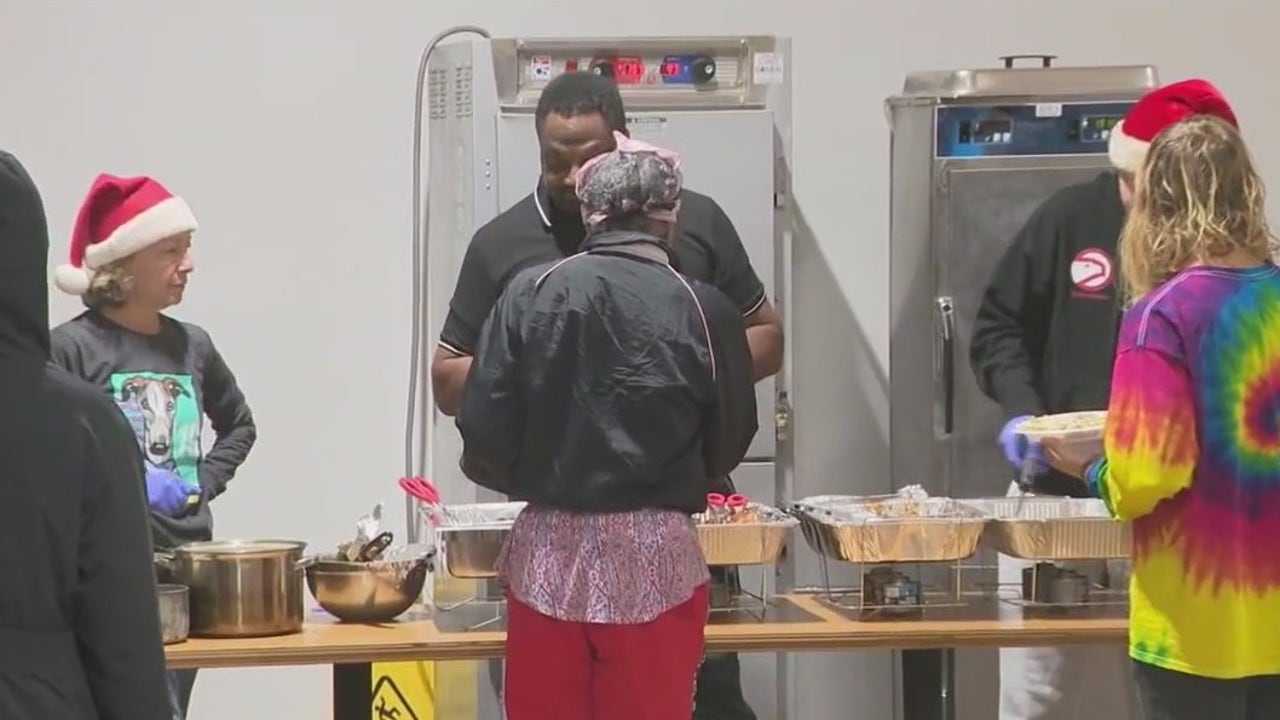




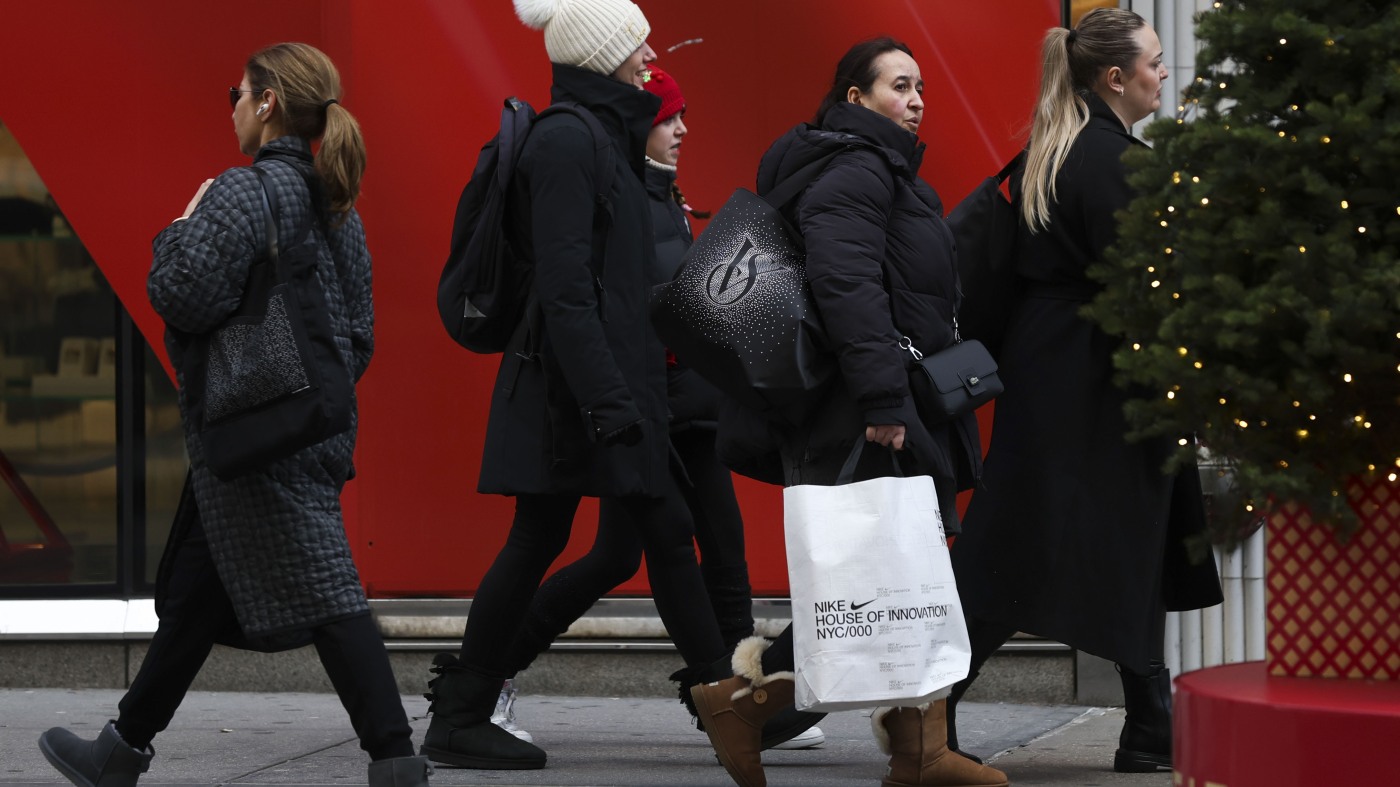
/cdn.vox-cdn.com/uploads/chorus_asset/file/25742882/DSC_1384_Enhanced_NR.jpg)








